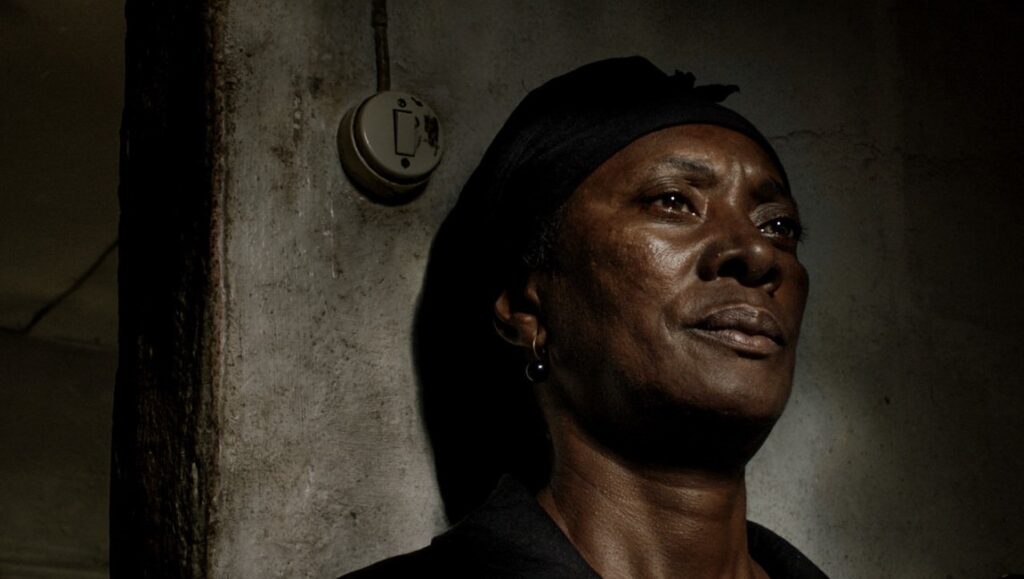Vitalina Varela is a profound humanistic effort, conceptually bold and featuring compositions of affecting beauty.
Winner of last year’s Golden Leopard at the Locarno Film Festival, Pedro Costa’s Vitalina Varela immediately asserts itself as an artistic and conceptual distillation, if not culmination, of a career that has folded portraiture, theater, anti-colonial politics, and class solidarity into a cinema that understands itself as a work that persists under, if not against, “the cinema”. While refining Costa’s artistic and conceptual sensibilities, this latest film may be most notable, at least to those familiar with the director, for its changing of the temporal rules that have up until now defined the occupants of Fontainhas. Since 2000’s In Vanda’s Room, many names and faces have recurred in Costa’s cinema as it has taken the aforementioned community as its object, with the spatial and temporal progression between that film and 2014’s Horse Money being decidedly linear; all of it a witness to an abiding sameness of material and mental degradation in the throes of poverty and the violence of history. Yet in the starkest of contrasts, Vitalina Varela asserts itself as an interruption of such linearity. While still following the director’s well-known docu-fictive strategies, the film — which suspends the temporal progression of his filmography at large and acts as a spiritual prequel or parallel temporality to the director’s 2014 work — presents events described by Vitalina in that film, chiefly her arrival in Portugal from Cape Verde not long after the burial of her runaway husband, as she comes to terms with the facts of his abandonment and the destitution of his existence in Portugal—is the most forceful expression of Costa’s desire, or fight even, in his own words, to “respect time… to be with time, on the side of time” as he and his actors excavate the memories that haunt their waking and dreaming.
Horse Money and Vitalina Varela are united as films dedicated to the traumas, secrets, and selective recollections of the people and characters of Ventura and Vitalina—who take precedence in each, respectively—and the attempt to give them back history and the time taken from them. Each film contends with figures and images of the past invading the present of their protagonists, and if Horse Money conceivably ends in failure—a repossession by historical violence—Vitalina Varela, which sees visions or dreams of a young Vitalina in her then under-construction home on the hills of Cape Verde reverberate out of the past into the mind of the older Vitalina in Portugal, is its opposite. “It’s all about the work”, remarks Costa, and fittingly, for the words are not just emblematic of the production itself and the director’s wider philosophy — which is actively challenging cinema and its means of operation and the ends they are directed toward—but of the very themes of the film: the attempt to not only to stand with time but to return agency and free a person to build again. Vitalina Varela will rightly be celebrated for the beauty of its claustrophobic Vermeer-esque, Lewton-inspired compositions, methodical editing, and languorous shooting rhythms, but it is the denouement that confirms the film as a work of extraordinary conceptual and humanistic vision: a movement of character out of frame and a cut that connects a rejection of present isolation with the joy of a Cape Verdean past. In these closing moments, the viewer witnesses a restoration of agency through an uncompromising respect for time; not only might the character have found the capacity to build again, but all the more so might the very person of Vitalina herself have—through a seizing of the tools of cinema and its collapsing of the rules of time—returned her life to herself.
Published as part of February 2020’s Before We Vanish.


Comments are closed.